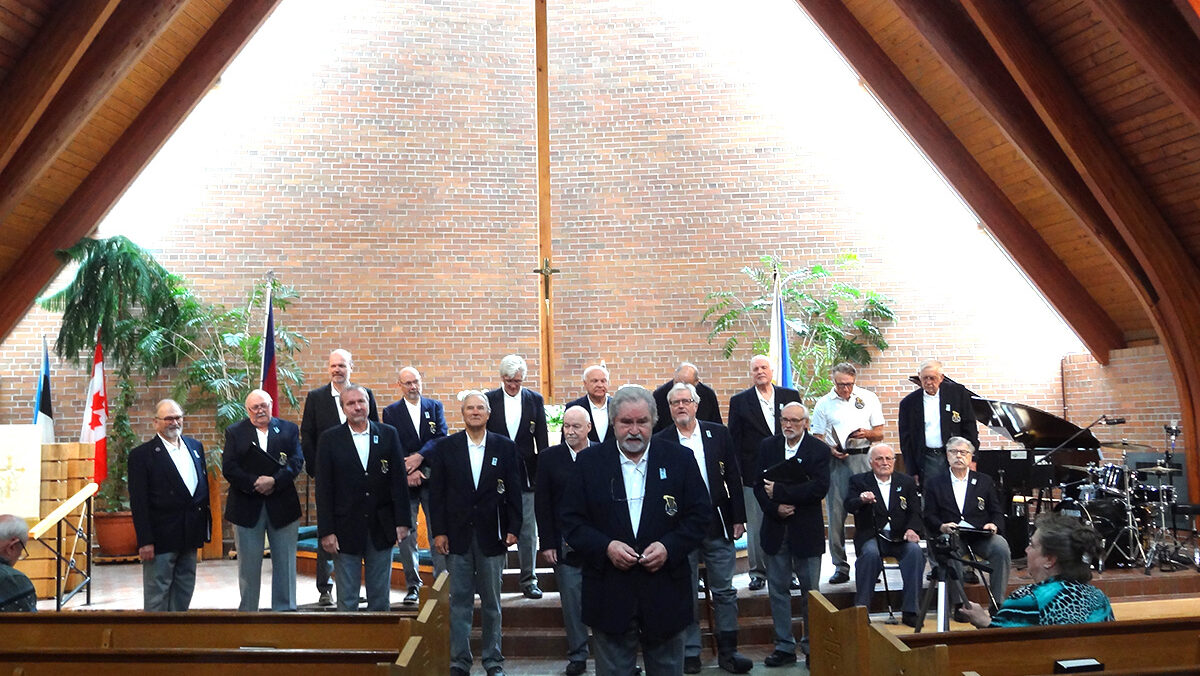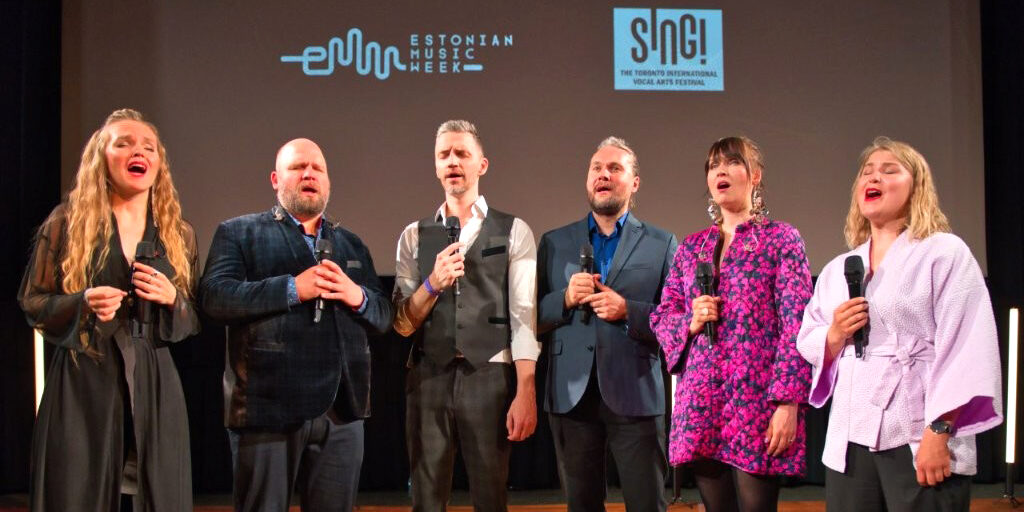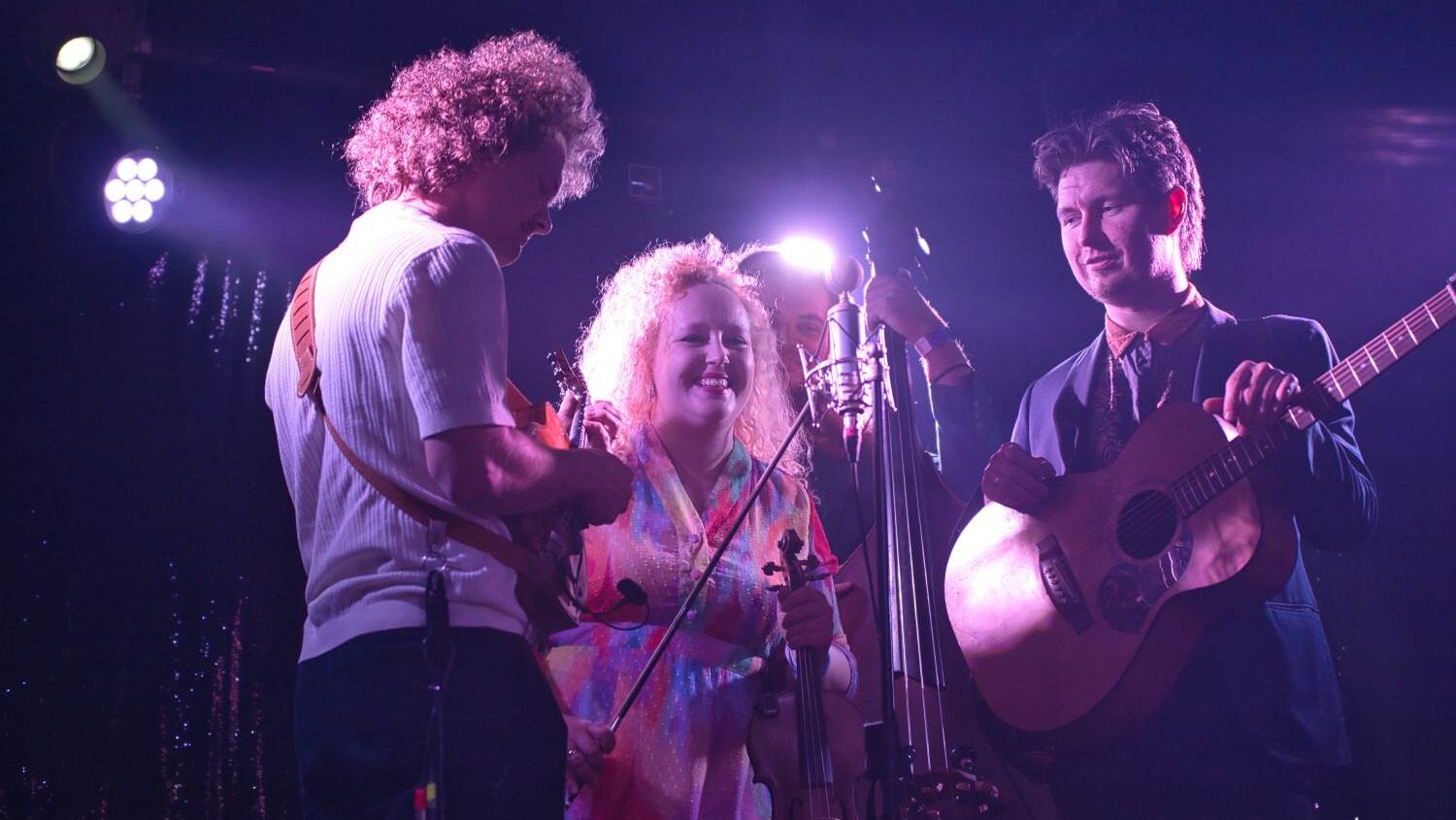In the case of the Second World War, there is an entire industry busily falsifying the consequences of Communism. Rather than accept the eradication and murder of 100 million victims, it is easier to focus condemnation elsewhere. This tweak in verity explains why the tiny Baltic States, nothing more than a short-cut between two superpowers, are being shunted to the sidelines, not because they did anything wrong but because they are first-hand witnesses to an historic crime that the West is still forced to drag along and justify to future mankind. Such is the fate of all small nations who have tried to hold back the hordes of conquerers who laud themselves as “liberators” and liberate everyone not only of their countries, their possessions and their lives but also of their reputation as hard-working, honest citizens of the civilized world. And such is the fate of the Baltic States and Estonia right now.
Can we turn this around? I believe we can. This is hardly the time to speak of writing our own history because our history has already become part of an incoporated electronic media, whose only output is supplied by input. There is no conscionable filter and no one really cares about details. Also, this history is English-speaking in its global format and anything that does not fit that narrative is discarded or lost in translation. It is therefore vital that our input is all of three things; it is in English, it is produced through the mass-media and it can be digested by a non-reading public in ways people can remember. This is how our opposition works and how today's history is put together. People want happy endings, they want to believe in real heroes and dastardly villains. They want closure.
Communism is clogging the filter because we can still name the dead and make the ink run. The supporters of that system want our input to be disclaimed. The point I'm making is that if we want our historic truths to be told in today's real world we have to present the heroes and villains clearly enough to be understood by the common man. As Stalin said, the killing of one is murder and the killing of millions is a statistic. Small nations cannot claim statistics but they can present the human face as long as it is introduced through the same media that educates the average English/American conscience. That is where history is written – ours and everyone else's. With the slow demise of the printed word we are reverting to ancient times, to days when history was passed along orally and visually from generation to generation. Well meant tomes and scholarly treatises no longer cut it. Luckily there is still time to act. People still read books, both in print and electronically and our English language books play a vital role in what will be known about us in the future.
Let me make a point. Estonian books written in Estonia for Estonians are our pure breed and our national pride. They are Estonia and will remain Estonia as long as Estonia exists. But I'm speaking of the future. The global future is in English. There are at least half a dozen English language books gathering dust on shelves in Estonian Clubs and bookshops, but we already know our own story. The readers we are hoping to educate don't even know we exist. Or maybe we are not writing the right kinds of books. Let's start with Finnish/Estonian author Sofi Oksanen's “Purge”. The world is falling over itself to get at the vital truths revealed in that book. The same goes for Lithuanian writer Ruta Sepetys's “Between Shades of Gray”. Read the reviews: “Purge”: “… history of a country repeatedly violated by the Russians, by the West, and by history itself.” “A stinging account of a chapter of Eastern European history that we are on the verge of forgetting – or denying.” “Between Shades of Gray” about Siberia: “… a document long overdue.” One would think nobody had even heard of Soviet attrocities or Siberia until those books were printed! Are we missing something here or have we already taken a stand in defeat; such as: “Nobody is interested. We don't have access to the media or worse, we don't like to talk about those things any more.”
Yet we have the books. We have the writers. We have the ear of the Western world. Estonia is enormously popular in England. We have enough people in Estonia and the exile communities worldwide who have the necessary access to media outlets. “Carrying Linda's Stones”, “She Who Remembers Survives” are not for us alone, we already “carry” and “remember”. It's our non-Estonian-speaking neighbours, children and grandchildren who need to pick up the slack.
I have just written my own contribution to this narrative:”Into Exile: A Life Story of War and Peace” but that too is only a small chip in the big picture. My claim to be included in this chain began years ago. All my Estonian books (except perhaps one) are about the struggle to live in the real world of today yet still preserve the images of yesterday. When we fled Estonia my grandmother, widow of the Estonian poet Ernst Enno, did not bother to pack food or necessities, she packed her husband's poetry, when poetry and literature were still the major essence of a culture. This is no longer the case.
The written word as been replaced by imagery and in order for our Second World War and Cold War history to remain intact, we need to “remember” our survivors and “carry” their stories beyond the family, the neighbourhood and our ever-dwindling circles of exiles, into the global culture of the English-speaking world. More important, we need to fill a fifty year gap with the truth, with images that remain in the mind of the readers and counterbalance any mistakes, sloppy input and misinformation that will eventually determine what will be left of our history and culture, as it truly was. Like it or not, the 21st century is English speaking, American thinking, media driven, formatted to a template that has a short attention span and accepts imagery at the speed of light. Plus, that imagery is up for grabs, it can be manipulated – and believe me, it is! What does the world know about Estonia and the Baltic States? I'm not going down that road except to mention one word “heroes” – and ask “what has happened to our heroes?” And this is where our life stories come in, those moldering on bookshelves and those not yet written.
One person's life story is a Memoir, a hundred similar Memoirs become history and this is where we are falling short. It takes eye witnesses from both sides of the War and the Cold War to fill that vulnerable gap in our past that is in danger of collapsing. Our stories need to be told by the surviviors themselves, not by bystanders or those with a vested interest in getting it wrong. We need to tell the world about the crimes the Communists committed in our countries, not in abstract but in the same graphic details that have convicted the Nazis. We need to remind the world, through the mass-media and to-day's imagery that Hitler and Stalin were equal villains. The narrative is still ongoing and we all need to contribute. Estonia is not just our country it's our obligation.

Elin Toona Gottschalk




